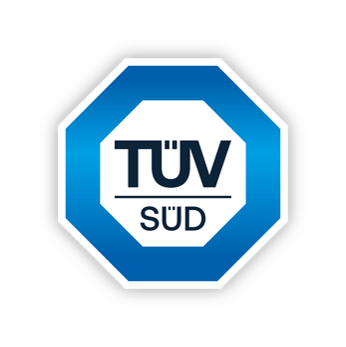Artificial intelligence (AI) is one of the most powerful and versatile technologies of our time, playing a crucial role in determining the future competitiveness of industries and organisations. While being an early adopter of AI is becoming increasingly important, organisations must also prioritise a proper implementation mitigating potential risks.
“We must ensure that AI applications are safe, secure, reliable, and meet ethical principles,” said Dr. Andreas Hauser, CEO of Digital Service at TÜV SÜD. Not only for scalability but also for compliance reasons. The European Union (EU) will take a leading role here in regulating the ethical use of AI with the introduction of the AI Act, the first comprehensive law on AI by a major regulator. “Specific applications, such as mass surveillance or manipulative applications, will be simply forbidden,” Hauser added.
The summit will bring together data scientists, developers, tech startups, ethical experts, and scientists to discuss the latest breakthroughs in AI and what they mean for the future of humanity. TÜV SÜD will contribute its view as an independent, impartial, and trust-building organisation.
Conversations about trust, bias, privacy, and safety in the realm of AI tend to yield more questions than answers. From an organisational standpoint, it’s not a question of the inherent goodness of the technology but rather the readiness of organisations to deploy AI safely, responsibly, and ethically.
Having a robust AI quality framework can serve as a guardrail for organisations to mitigate risks associated with the large-scale use of AI. Given the dynamic developments in AI, it can be difficult for organisations to zero in on a single framework that fits their context and has the longevity to withstand changes in this dynamically growing field.
“At TÜV SÜD, we propose an agnostic approach to AI quality that relies on standards, regulations, and criteria that enjoy a high level of consensus among experts, covering all relevant quality aspects and delivering application-specific results,” explained Hauser.
TÜV SÜD designed its e-learning courses, virtual instructor-led training sessions, and AI Quality Certification Program (AIQCP) for AI practitioners, AI experts, and AI quality managers. Training is a vital foundation not just for scaling AI but also for practising compliant and responsible AI use to mitigate financial, legal, and reputational risks.
“To maximise AI’s potential while ensuring responsible and beneficial use, organisations must prioritise the quality of AI as the key guardrail,” added Hauser.
TÜV SÜD’s approach to AI quality helps organisations ensure that AI deployments are safe, secure, reliable, and ethical. To learn more about TÜV SÜD’s comprehensive and agnostic approach to AI quality, visit TÜV SÜD at Booth A10 at the World Summit AI, or visit TÜV SÜD's website.
Global AI events calendar
Montréal, Canada
.png?width=259&name=WSAI%20Amsterdam%20Orange%20no%20dates%202000x300%20(1).png)
.png?width=263&name=IM_Mothership_assets_LOGO_MINT%20(2).png)

